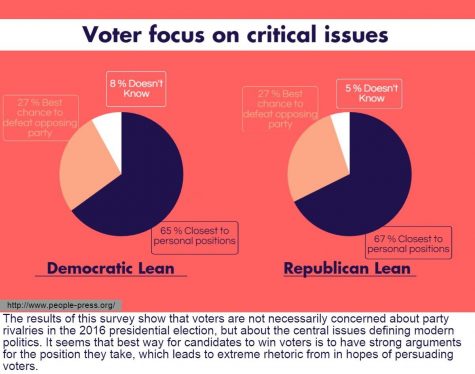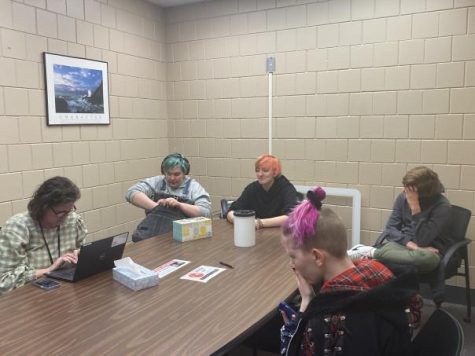Presidential candidates show opinions towards Planned Parenthood

As shootings become overly common in society, divisive political issues only add fuel to fire. The Planned Parenthood shooting on Nov. 27 showed the extremes of defining issues in current politics. Positions on terrorism, abortion, health care, the economy and immigration are hot topics in the 2016 presidential debate. These crucial issues, and the rhetoric surrounding them, can cause alarm over how far candidates are willing to go to prove a point.
Specifically from the Republican party, it seems that the name calling will never end. The constant verbal assault on democratic candidates, especially Hillary Clinton and Barack Obama for essentially every policy he has passed as president has become excessive.
During the debate on Aug. 6 in Cleveland, Ohio, one of the questions provided by the moderator was to describe Clinton in two words. The attack that ensued was to be expected and the role that the media plays in inflaming tensions is too much to be ignored as well.
In response to the question, Carly Fiorina used her two words to describe Clinton as, “Not trustworthy. No accomplishment.” Other comments included questions about her trustworthiness, barbs aimed at the email scandal that was exposed last year, as well as accusations of a socialist agenda.
This issue over rhetoric is in no way one sided, Democratic candidates are giving just as well as they get.
Clinton has said, “Look at what’s happening with the Republicans. They’re doing everything they can to prevent the voices of Americans to be heard,” and describing it as “Republican oppression”.
Jabs from republicans are not just aimed at Clinton and Obama specifically, but the entire democratic party has come under attack.
During the debate on Oct. 28 candidate Ted Cruz said “Let me be clear. The men and women on this stage have more ideas, more experience, more common sense than every participant in the Democratic debate.”
The number of times that Donald Trump has been attacked since his announcement of candidacy last year is innumerable.
During the Democratic debate on Nov. 14, candidate Martin O’Malley went so far as to call Trump an “immigrant bashing carnival barker”.
This particular comment actually ended being O’Malley’s most talked about moment on Twitter during the debate, which speaks volumes to the popularity of Trump bashing.
Candidates shouldn’t make such personal, and distasteful attacks because it will only end up getting worse with swearing, threats and quite possibly violence. The amount of offensive comments already aimed at candidates is well above what is appropriate. Voters need to draw the line.

Cassie is a junior at Stillwater High School. She is the Sports Photographer for the Pony Express. She loves painting and other arts. She is in Amnesty...









E • Jan 30, 2016 at 11:04 pm
I disagree with your article because it uses the false pretense that politics was all about politeness and niceties up until now. Politics in America has always had an element of crass to it. Politicians in the past have said things far worse on the campaign trail than they do today. The slippery slope you propose of ad hominem attacks turning into threats and violence does not have a solid footing in American political history. If we take a look at our political history even as far back as our founders, politics has always had its “distasteful” elements.
• Thomas Jefferson hired James Callendar to say John Adams had a “hideous hermaphroditical character”
• Davy Crockett accused Martin Van Buren of “wearing women’s corsets”
• James Buchanan was accused of trying to hang himself because of a congenital tilt of his head.
• Lyndon B. Johnson put out coloring books of his political opponent, Barry Goldwater, in KKK robes, and released ads suggesting his opponent would start a nuclear war.
• William McKinley stated his opponent William Jennings Bryan should be examined as “a degenerate”
• Teddy Roosevelt said that William Howard Taft was “a rat in a corner”
All of these ad hominem attacks happened in Politics without the progression towards threats and violence.